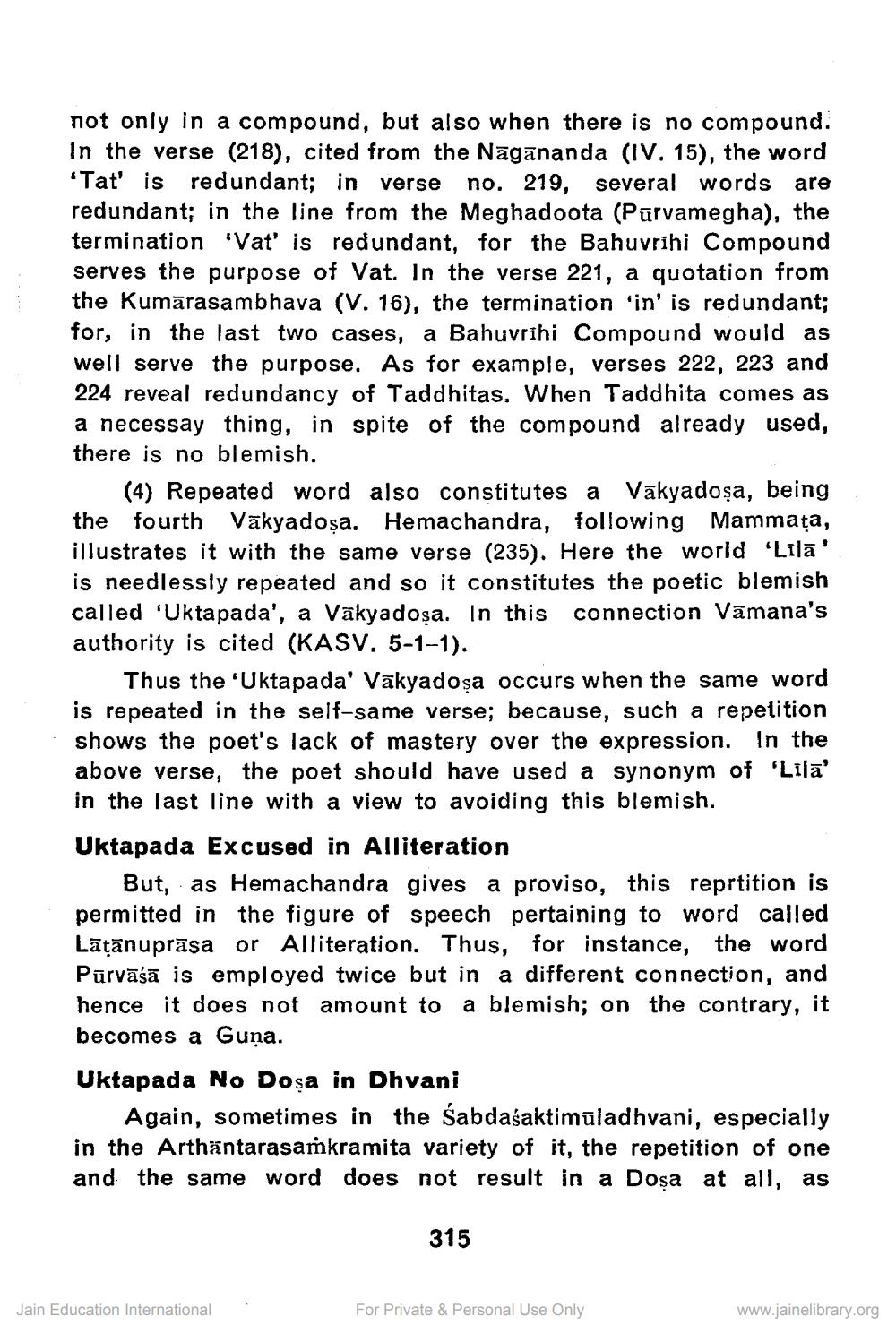________________
not only in a compound, but also when there is no compound. In the verse (218), cited from the Nāgānanda (IV. 15), the word 'Tat' is redundant; in verse no. 219, several words are redundant; in the line from the Meghadoota (Pūrvamegha), the termination 'Vat' is redundant, for the Bahuvrihi Compound serves the purpose of Vat. In the verse 221, a quotation from the Kumārasambhava (V. 16), the termination 'in' is redundant; for, in the last two cases, a Bahuvrihi Compound would as well serve the purpose. As for example, verses 222, 223 and 224 reveal redundancy of Taddhitas. When Taddhita comes as a necessay thing, in spite of the compound already used, there is no blemish.
(4) Repeated word also constitutes a Vākyadoşa, being the fourth Vākyadoșa. Hemachandra, following Mammața, illustrates it with the same verse (235). Here the world 'Lila' is needlessly repeated and so it constitutes the poetic blemish called 'Uktapada', a Vākyadoșa. In this connection Vāmana's authority is cited (KASV. 5-1-1).
Thus the 'Uktapada' Vākyadoşa occurs when the same word is repeated in the self-same verse; because, such a repetition shows the poet's lack of mastery over the expression. In the above verse, the poet should have used a synonym of 'Lila' in the last line with a view to avoiding this blemish. Uktapada Excused in Alliteration
But, as Hemachandra gives a proviso, this reprtition is permitted in the figure of speech pertaining to word called Lāțānuprāsa or Alliteration. Thus, for instance, the word Pūrvāśā is employed twice but in a different connection, and hence it does not amount to a blemish; on the contrary, it becomes a Guņa. Uktapada No Dosa in Dhvani
Again, sometimes in the Sabdaśaktimuladhvani, especially in the Arthäntarasamkramita variety of it, the repetition of one and the same word does not result in a Doşa at all, as
315
Jain Education International
For Private & Personal Use Only
www.jainelibrary.org




